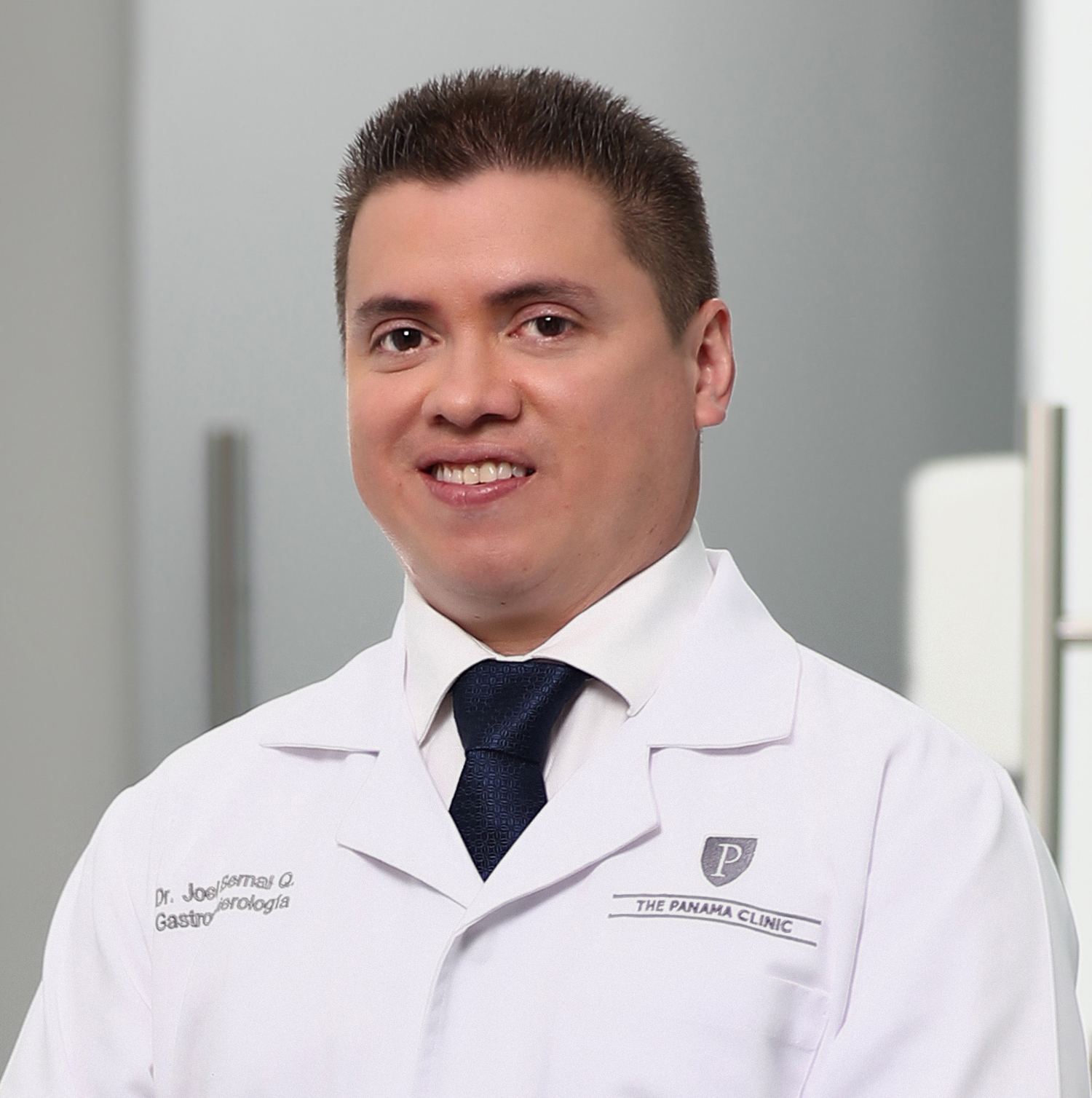Cáncer de Colon
El cáncer colorrectal es el segundo tipo de cáncer más mortal en la actualidad; sin embargo, para que el cáncer llegue a un estado avanzado, el paciente debió desarrollar la enfermedad aproximadamente por 10 años, luego de la aparición de su primer pólipo. Si el cáncer de colon es tratado a tiempo, las probabilidades de supervivencia aumentan a favor del paciente.
Un centro especializado en el tratamiento del Cáncer de Colon
Abordamos el cáncer de colon desde un enfoque integral, combinando tecnología avanzada y un equipo multidisciplinario de especialistas. Ofrecemos diagnóstico temprano y tratamientos personalizados, asegurando opciones eficaces y seguras para cada paciente.

Mayor incidencia
El cáncer de colon es una de las principales causas de muerte oncológica, pero con detección temprana, las tasas de supervivencia son significativamente mayores.

Aumento del riesgo
El riesgo de desarrollar cáncer de colon aumenta con la edad, siendo más frecuente en personas mayores de 45 años.

Diagnóstico y Estadificación
Mediante estudios como la colonoscopía, biopsias y pruebas de imagen, los especialistas pueden clasificar el cáncer asertivamente.

Bienestar General
Enfrentar un diagnóstico de cáncer de colon es un desafío físico y emocional. Contarás con apoyo psicológico en cada etapa del tratamiento.
Equipo Multidisciplinario
A través de sesiones multidisciplinarias, determinan si el abordaje más adecuado es cirugía, quimioterapia, radioterapia u otros tratamientos personalizados
¿Qué es el cáncer de colon?
Es una enfermedad causada por el crecimiento desproporcionado de células, las cuales con el pasar del tiempo, se van transformando hasta convertirse en tumores malignos. Estos tumores, tienen la capacidad de destruir el revestimiento y los tejidos internos del tramo inferior del intestino grueso; mejor conocido como colon.
El colon comprende la parte más extensa del intestino grueso (aproximadamente 1.5 metros), comenzando en el extremo final del intestino delgado y terminando al principio de la zona rectal. El colon tiene una división interna de 4 tramos: ascendente, transverso, descendente y sigmoide.
Síntomas del cáncer de Colon
Aunque los síntomas no sean evidentes al inicio de la enfermedad, se recomienda estar alerta a cualquier cambio, principalmente a la hora de ir al baño. Las señales se hacen más visibles al momento de las deposiciones, pudiendo notar signos anormales como: sangre, heces más delgadas de lo común, estreñimiento o diarrea.
Otros síntomas que pueden aparecer son:
Disminución de peso sin razón aparente.
Anemia (ocasionada por la pérdida de sangre en las heces).
Molestias, dolores y calambres en el área abdominal.
Fatiga.
Náuseas y vómitos.
Síntomas avanzados del cáncer de colon
El cáncer de colon puede causar síntomas graves que necesitan atención médica rápido. Estos síntomas pueden mostrar que el cáncer ha crecido y se ha extendido a otras áreas. Esto complica el tratamiento y puede reducir las posibilidades de sobrevivir.
Pérdida de peso inexplicada
Una pérdida de peso sin causa aparente puede ser un signo de cáncer de colon avanzado. El cáncer puede afectar cómo nuestro cuerpo absorbe los nutrientes. Esto lleva a perder peso sin querer.
Fatiga constante
La fatiga y la debilidad son síntomas comunes de cáncer de colon avanzado. El cuerpo dedica mucha energía a luchar contra el cáncer. Esto puede dejar poco para hacer las cosas cotidianas. Si se siente siempre cansado y débil, es importante hablar con un médico.
Anemia y debilidad
El cáncer de colon puede causar sangrado interno que lleva a anemia. La anemia se caracteriza por tener pocos glóbulos rojos. Esto puede causar fatiga, debilidad, palidez y dificultad para respirar. Si se descubre anemia, es posible que se hagan más pruebas para encontrar la causa, que podría ser el cáncer de colon.
Tipos de cáncer de Colon
En las neoplasias de colon predominan los adenocarcinomas; no obstante, aquí nos encargaremos de reseñar este y otros de sus tipos más conocidos:
Adenocarcinoma:
Se produce en las células mucosas encargadas de cubrir y lubricar el intestino; usualmente comienza con un pólipo benigno, que poco a poco se va desarrollando hasta crear una tumoración.
Tumor carcinoide:
Afecta a las células endocrinas responsables de la producción de hormonas dentro del intestino.
Tumores del estroma gastrointestinal:
Se considera un tipo de sarcoma poco frecuente en el colon; sin embargo, cuando aparece, el alcance de su daño puede extenderse tanto al tubo digestivo como a los vasos sanguíneos y tejidos del colon.
Linfoma primario de colon:
Neoplasia infrecuente que puede originarse en el colon y atacar el sistema inmunitario del paciente.
Leiomiosarcoma de colon:
Tumor colorrectal extremadamente raro y muy agresivo, que nace en las células internas de la pared intestinal.
Contáctanos
Agenda una cita
Solicite una consulta
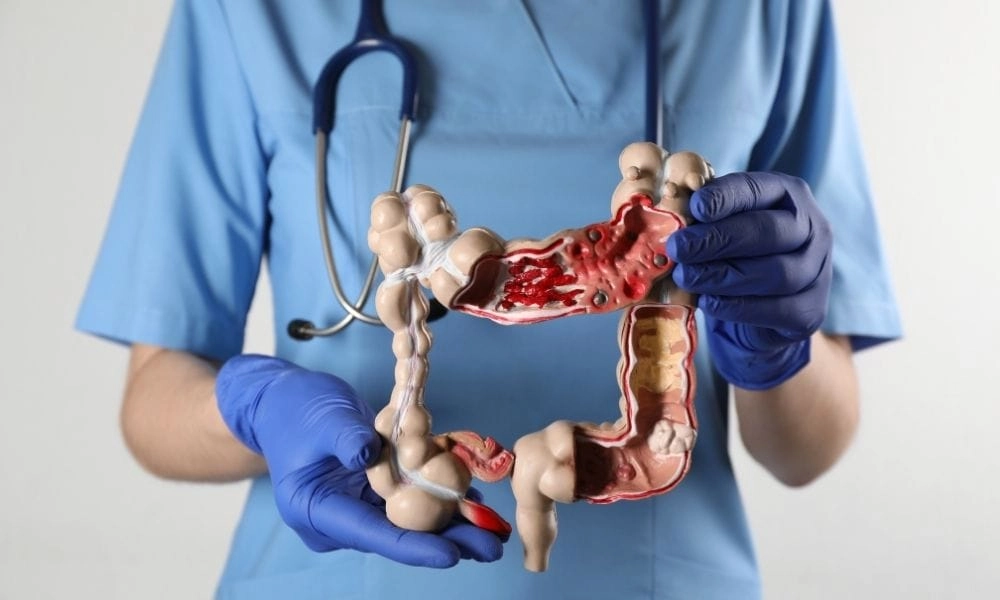
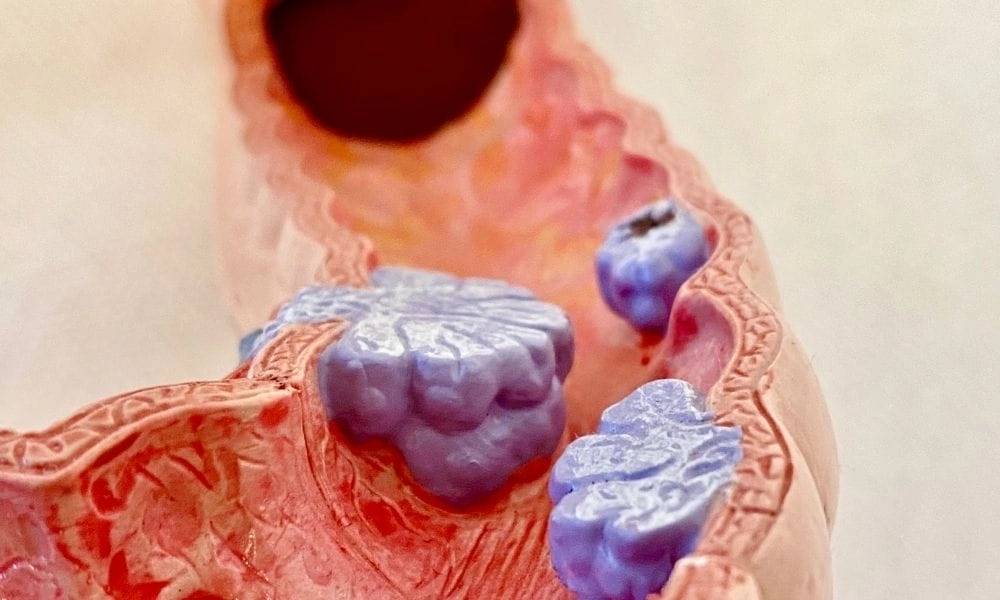
Pruebas de detección
¿Cómo detectar el cáncer de colon?
El diagnóstico oportuno del cáncer de colon influye directamente en las tasas de superación del paciente; de hecho, se estima que alrededor del 90% de los cánceres de colon pueden ser curados, si son descubiertos en sus primeras etapas.
Las pruebas para su diagnóstico pueden incluir:
Análisis de heces:
Este examen es muy útil para confirmar o descartar la presencia de sangre en la materia fecal. Cuando un resultado es positivo, sirve para advertir la existencia de un sangrado proveniente del tracto digestivo.
Examen físico:
Palpar el área del colon es imposible; aún así, los médicos realizan el tacto rectal para buscar anomalías (bultos sospechosos o dolor) en las zonas cercanas al recto.
Pruebas por imágenes:
Las radiografías enfocadas en el colon y el recto, por ejemplo: El enema de doble contraste; son métodos especiales que sirven para obtener imágenes más definidas de la pared intestinal.
Colonoscopia:
Es una de las pruebas más precisas ante la sospecha clínica de cáncer colorrectal. Durante el procedimiento, el médico accede al interior del intestino grueso gracias a un instrumento especial llamado colonoscopio, el cual se introduce lentamente a través del recto para observar o extraer muestras del tejido afectado.
Factores de riesgo
Las probabilidades de padecer cáncer de colon se incrementan principalmente por los antecedentes familiares. Si en su familia existen miembros con síndrome de Lynch, enfermedad de Crohn, poliposis, colitis o cáncer de colon; su riesgo es más alto.
Otros factores que pueden influir son:
Edad:
No es una regla, pero generalmente el cáncer de colon aparece con más frecuencia después de los 40 años; y sigue en aumento conforme pasa la edad.
Alimentación:
Las dietas con un alto consumo de carnes rojas, alimentos procesados y sodio, son perjudiciales para la salud.
Obesidad:
Sobre todo en aquellas personas con exceso de grasa en el abdomen.
Tabaquismo:
Entre el 30 y 40 por ciento de las personas fallecidas por cáncer de colon, han resultado ser fumadores activos.
Prevención
¿Cómo prevenir el cáncer de colon?
La clave de la prevención está en la incorporación de hábitos más saludables a las rutinas diarias; por ello se recomienda:
Ingerir alimentos ricos en fibra.
Evitar las grasas saturadas, el sodio y las carnes rojas.
Reducir el consumo de alcohol y tabaco.
Ejercitarse regularmente.
Vigilar constantemente sus deposiciones.
Incluir revisiones periódicas después de los 40 años.
Investigar sus antecedentes genéticos.
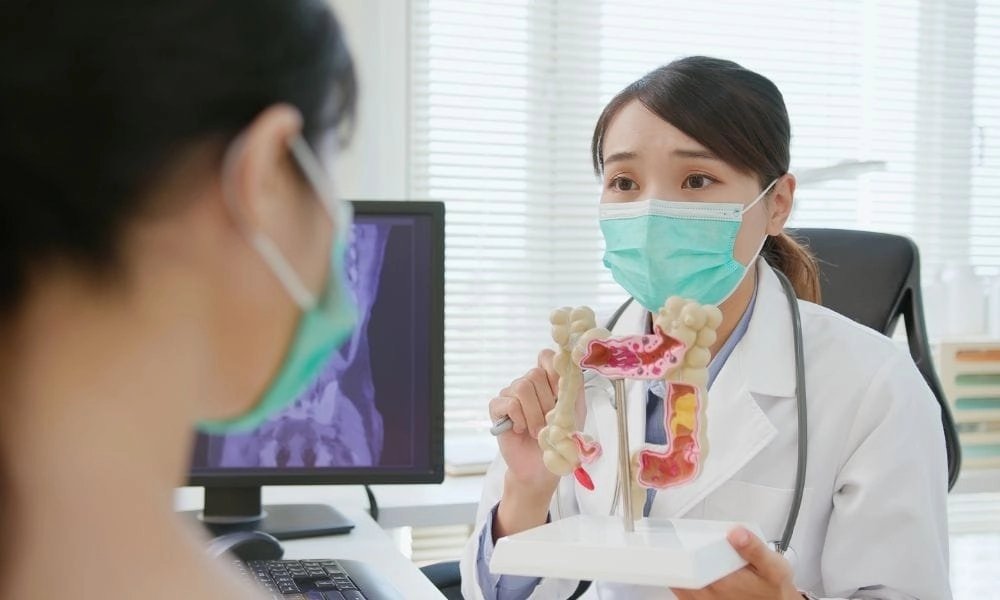
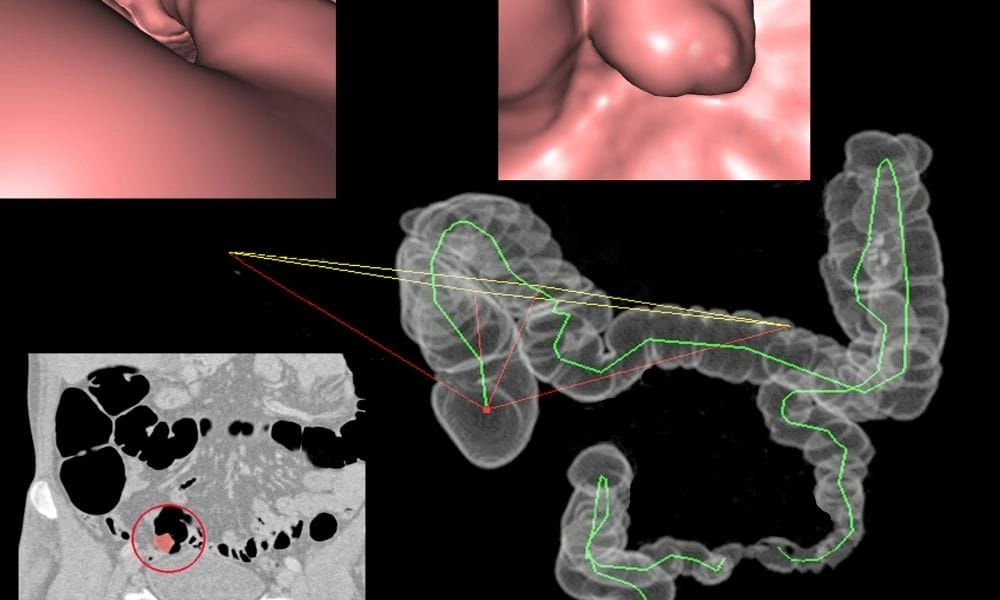
Tratamientos para el cáncer de colon
Luego de confirmar el diagnóstico, los objetivos se centran en la eliminación total del tejido canceroso mediante cirugía. Los pacientes con carcinoma in situ (estadio 0), pueden optar por una escisión local o una polipectomía simple, pero a medida que el cáncer se extiende esta opción queda descartada.
Los tumores avanzados requieren procedimientos más contundentes, entre ellos: la resección y la anastomosis; donde se corta y extrae el tejido tumoral para posteriormente unir entre sí los extremos sanos resultantes, esto ayudará a restaurar el funcionamiento intestinal del paciente.
Después de las cirugías, pueden emplearse otros métodos de tratamientos como: quimioterapia, radioterapia, terapia dirigida, inmunoterapia u otras terapias paliativas. Las acciones a tomar van a depender del estadio del cáncer y las condiciones de salud de cada paciente; por lo que una conversación directa con un especialista es esencial en este punto.
Complicaciones
Esta incomodidad puede ser resuelta por su médico con tratamientos adicionales.
Obstrucciones en el intestino.
Reincidencia del cáncer.
Aparición de metástasis en otros órganos o tejidos.
En Panama Cancer Clinic le acompañamos en cada etapa de su tratamiento con empatía y profesionalismo, con el objetivo de mejorar su calidad de vida y brindarle la mejor oportunidad de recuperación.

